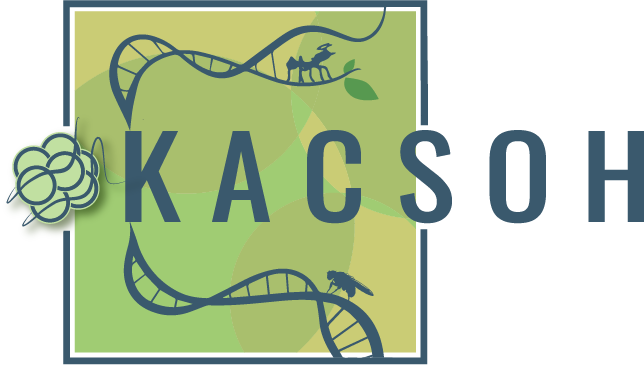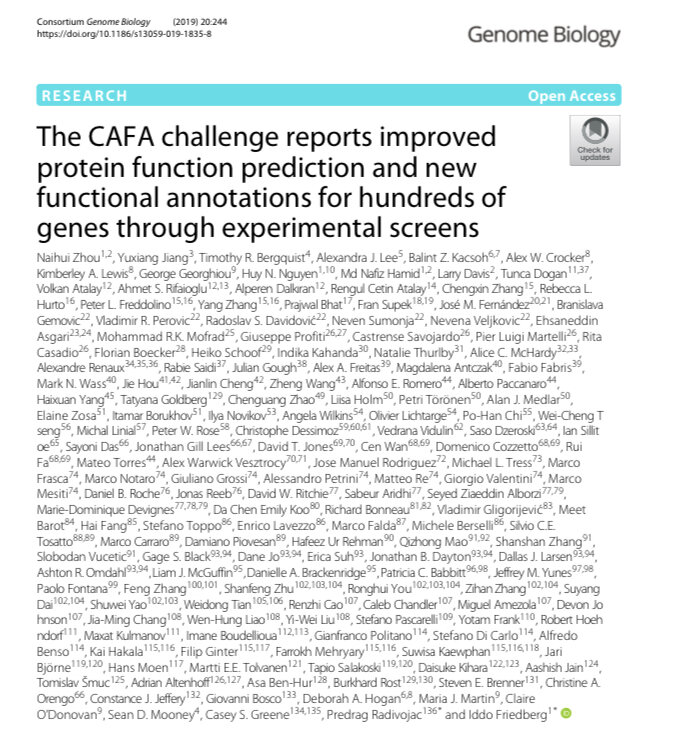Our image recieves Drosophila image award honorable mention
See all images here
Our paper wins the PLOS Genetics Research Prize 2019!
Our work is featured on the September cover of G3!
Read more here
Our latest paper makes the cover page of Communications Biology
Published today in Communications Biology! ‘Neural circuitry of social learning in Drosophila requires multiple inputs to facilitate inter-species communication’
Our p̶r̶e̶p̶r̶i̶n̶t̶ paper is l̶i̶v̶e̶ published today in Communications Biology! ‘Neural circuitry of social learning in Drosophila requires multiple inputs to facilitate inter-species communication’
We identify six Drosophila brain regions necessary for flies to learn the ‘dialect’ of another fly species and understand their warnings about the presence of parasitoid wasps. We also find that the neural circuits for interspecific dialect learning are much more complicated than those for intra-specific learning, relying on multisensory cues.
Press from Bozler et. al in elife
Our p̶r̶e̶p̶r̶i̶n̶t̶ paper is l̶i̶v̶e̶ published! "Transgeneratonal inheritance of ethanol preference is caused by maternal NPF repression" out now at eLife!
Our p̶r̶e̶p̶r̶i̶n̶t̶ paper is l̶i̶v̶e̶ published! "Transgeneratonal inheritance of ethanol preference is caused by maternal NPF repression" out now at @eLife!
Balint presents at the Genetics Society of America early career seminar series
Balint recieves the 2019 Hannah T. Croasdale Award
Balint Kacsoh receives the 2019 Hannah T. Croasdale Award, presented by Dean F. Jon Kull (Photo: Lars Blackmore)
2019 Hannah T. Croasdale Award Recipient: Balint Kacsoh
Posted on June 10, 2019 by Amanda Skinner
The Hannah Croasdale Scholar Award is presented to the graduating Ph.D. recipient who best exemplifies the qualities of a scholar. These individuals possess personal qualities of intellectual curiosity, dedication, and commitment to the pursuit of new knowledge, and to teaching. The award honors Professor Hannah T. Croasdale, who performed research and taught biology for more than 40 years at Dartmouth. She was the first woman to achieve the level of full professor in the Arts and Sciences at Dartmouth.
The Guarini School of Graduate and Advanced Studies extends heartfelt congratulations to the 2019 recipient of the Croasdale Award, Balint Kacsoh.
Given the high standard of research across the Guarini School programs at Dartmouth, the selection process for the Croasdale Award is not an easy one. The high caliber of students is testament to the rigorous and renowned scholar-teacher model at Dartmouth, and the numerous letters of recommendation from advisors left us in no doubt that this School attracts scholars from among the brightest and best.
However, we have only one Award; and this year’s recipient stood out for his contributions to his field of research and to the academy in his approach to mentoring.
Balint Kacsoh received his M.S. in Biology from Emory University and joined the Molecular and Cellular Biology (MCB) Graduate Program in 2013 under Giovanni Bosco. During his career at Dartmouth, Balint has received numerous awards for his own academic output, and also for his contributions to the community as a mentor and teacher.
Driving his scholarship is the timeless question of nature versus nurture. This has shaped his research into learning, memory, and social behavior in Drosophila melanogaster(the fruit fly) and resulted in publications as first author in a number of important journals in the field. Balint’s ground breaking research has demonstrated that fruit flies learn from their environment and, while those learned memories fade with time, they may be shared with other fruit flies who did not learn their lessons the hard way—suggesting there is some kind of fruit fly language spanning multiple species within the genus Drosophila.
His mentor wrote of his output “He is a machine with a sophisticated brain that knows how to get things done! Voluminous writing is one of his strong points and getting Balint to slow down has been my greatest challenge in mentoring him.”
Balint’s work cascades from one discovery to another; his meticulous planning and color-coordinated charts and notes allow for synergistic connections to be made in his research. “As a consequence of Balint’s pioneering research, many spin-off projects have naturally evolved from his work,” writes his mentor.
Balint’s impressive attention to detail and meticulous planning have positioned him as a star mentor in the lab. He has frequently and graciously taken on the role of teacher for the new generation of students in the lab. His mentor notes how he has “patiently and consistently helped to train those who have come after him.”
In addition to serving as lab mentor, he has served on the recruitment committee for the MCB graduate program, co-chaired the Dartmouth annual neuroscience day, and gone above and beyond in his role as teaching assistant in which he received exemplary performance evaluations from students and faculty.
Balint will start as a postdoctoral researcher in one of the leading laboratories in epigenetics at UPenn under Shelley Berger where he plans to work on understanding the social behaviors of leaf-cutter ants. “Hardly a field that will make him wealthy,” notes his mentor, but one that will be richer for his contributions, as are we.
It is with great pleasure that we present Balint Kacsoh with the 2019 Hannah T. Croasdale Award. Congratulations, Balint!















